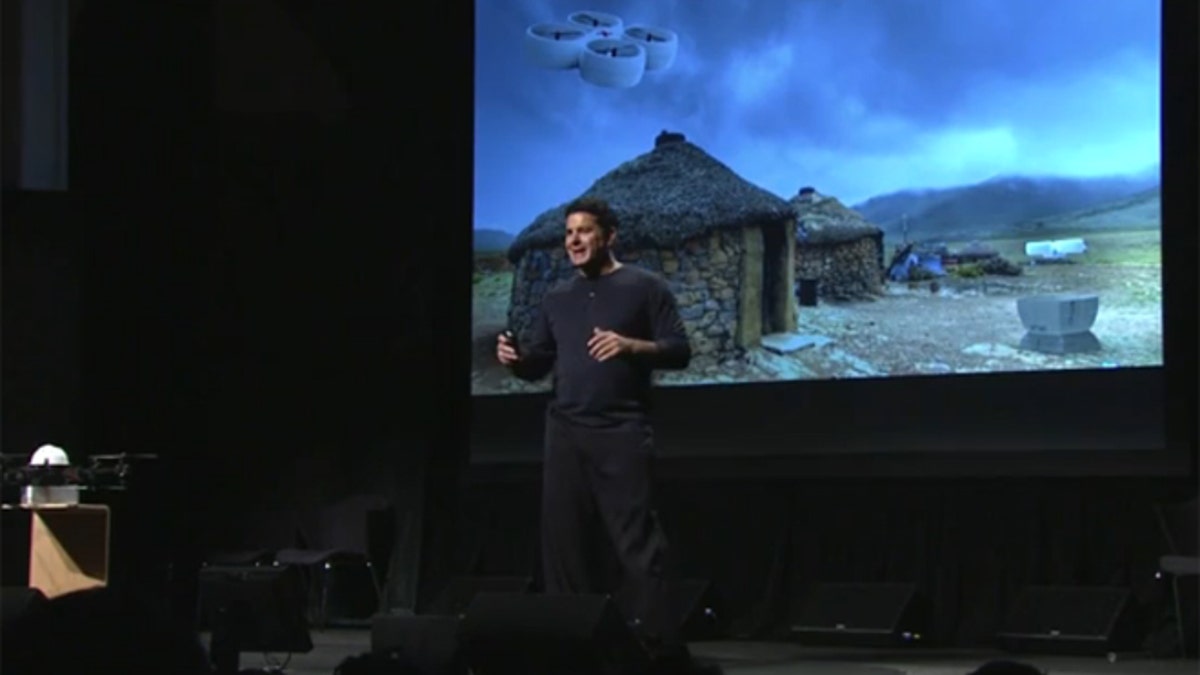
While unmanned drones have recently come under fire recently for deadly attacks in war-torn countries such as Afghanistan, Pakistan and Yemen, U.S. researchers working in the Dominican Republic and Haiti are trying to put a better face on these controversial devices.
One Silicon Valley start-ups is working on using unmanned drones as a cheaper and easier way to ferry medical supplies, food and potable water to hard to reach regions of the Caribbean nations.
One of the companies, Matternet, proposes setting up a series of base stations on the island about six miles apart that could carry 4-pound packages back and forth to the stations, thus negating the need to travel on treacherous roads. It takes the drones only 15 minutes to travel between stations.
Matternet says a test run of the program in the African nation of Lesotho would cost $900,000 for 50 base stations and 150 drones, which boils down to around 24 cents per flight, a cheaper alternative compared to $1 million price tag to build a 2km, one-lane road. So far the company has only performed their test in Haiti and the Dominican Republic.
“Imagine if we can deliver the medicine within hours or even minutes with a small autonomous flying device,” said Matternet CEO and founder Andreas Raptopoulos at last year’s Pop!Tech conference. “The key here is the autonomy of the solution, there are no humans involved.”
Raptopoulos explained that the drones fly to their locations using GPS waypoints, picking up and delivering loads or swapping out their old batteries for new ones.
During a test in the Haitian capital of Port-au-Prince performed last year, the drones flew medical supplies into a camp housing survivors of the country’s devastating 2010 earthquake. An online video posted by Matternet shows the drone with medical supples flying over the shantytown in the city’s Pétionville section before landing among a slew of houses at a local clinic.
"DR and Haiti are close to the US, we have some good links there with government and we have an emerging economy and a very undeveloped economy next to each other, so it seemed like a great place to start. Places like Santo Domingo, Rio or Sao Paulo, or Istanbul are the places we believe we will see Matternet first," Matternet co-founder Paola Santana told Fox News Latino.
While there have been early successes with the Matternet program, Raptopoulos acknowledged that there are still many kinks that need to be worked out before the drones are fully operational for use around the globe.
"We have to improve [the system's] autonomous navigation and battery exchange, and ensure it is safe. It will take us 12 to 18 months to address these adequately before we can consider commercial or humanitarian deployments," he said, according to the UK daily the Guardian.
Other concerns raised about the drones in developing nations is funding to set up the necessary infrastructure of bases and supply routes for the unmanned aircraft as well as ensuring safety where drones share airspace with other aircraft. The drones, however, only fly 400 feet off the ground in an uncontrolled airspace, which is lower than any plane or helicopter in flight.
The costs of continued research and development as well the safety and autonomy of the drones may be higher than anticipated by Matternet, said Eduardo Cabral, at the unmanned vehicle laboratory, University of São Paulo, Brazil, according to the Guardian.
"Security and safety are fundamental for this system to take off," Santana said.
The Matternet system will include safeguards such as geofencing, parachute, protected ground stations and protected AI safety, he added.
Unmanned and unarmed drones have popped throughout the Caribbean recently as the U.S. Department of Homeland Security announced plans last summer to launch unmanned surveillance flights into the Caribbean and the Gulf of Mexico in a move that would more than double miles now covered by the department's fleet of nine surveillance drones.
The DHS drones will not be used for humanitarian aid but to search for semi-submersible submarines and nighttime fast boat trips used by drug traffickers to transport cocaine and other drugs from Central America to Puerto Rico, the Dominican Republic and other Caribbean islands. Statistics show that the U.S. has apprehended five semi-submersibles in the region, but this is only a small number that authorities believe travel through Caribbean waters.
